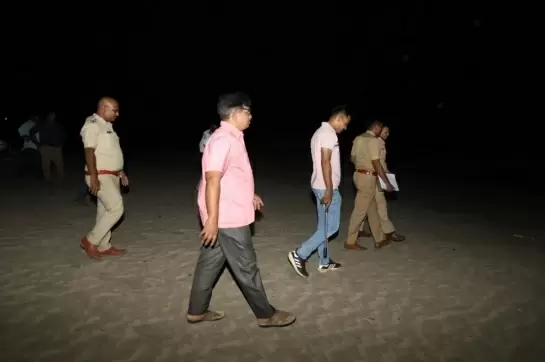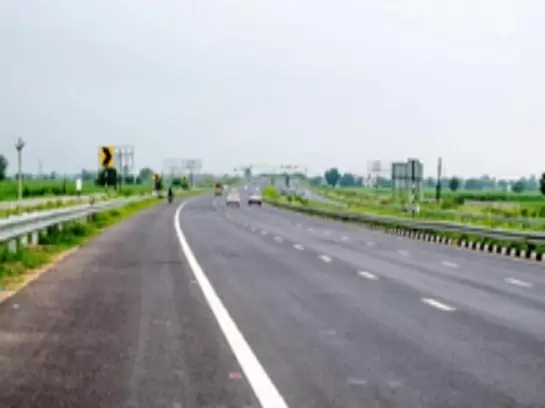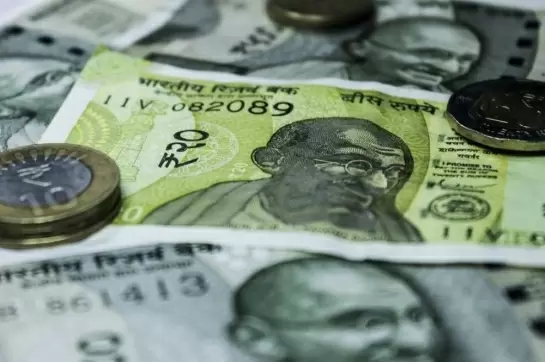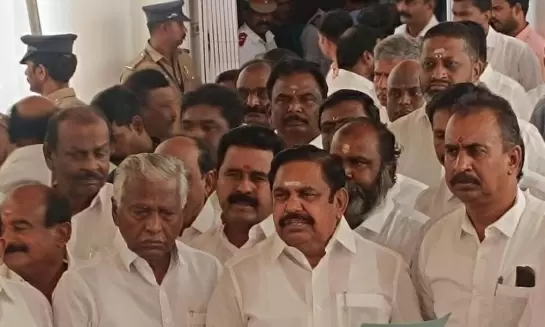No drastic fall in Delhi air quality in next two days
15-October-2019
Though the air quality in Delhi remains in the poor category and stubble-burning incidents have increased in Punjab, Haryana and even Pakistan, no drastic deterioration of air quality is expected in the next two days.
According to a forecast by Safar India, with an AQI score of 262, the overall air quality of Delhi is in the higher end of the poor category on Tuesday, and touched the very poor category on Monday night for a brief period.
The stubble-burning activity in Haryana, Punjab and nearby border regions have shown a slight increasing trend over the last 24 hours. The surface winds are slow which is not quite favorable for the efficient transport of the fire plume towards Delhi.
"In this condition, drastic deterioration of air quality is not expected over the next two days. AQI is predicted to be in higher end of poor to the lower end of the very poor category," the forecast said. The PM 10 score was moderate at 210 and PM 2.5 score in the poor category at 109.
According to a forecast by the Central Pollution Control Board (CPCB), stubble-burning firepoints have been observed in Haryana, Punjab and neighbouring Pakistan.
The CPCB said the air quality is expected to deteriorate marginally on Wednesday and likely to remain in lower end of very poor to poor category. The air quality is likely to improve on Thursday and expected to remain in poor category.
Experts have said that there is a need for working on long term solutions like augmenting the power supply to control air pollution in the Delhi NCR region.
Vivek Chattopadhyaya, Programme Manager, Air Pollution Control Unit, Centre for Science and Environment (CSE) said the GRAP helps to bring immediate relief from high pollution build up in the air, however, it doesn't discount the need for long term/comprehensive action.
"For instance, Delhi needs more buses, then only its frequency can be augmented in a short period. Also power supply should be adequate in NCR cities and there should be more use of solar panels - wherever feasible - to reduce dependency on diesel gensets, for a long term solution. So for systemic change we need to continue to work on such long term solutions", he added.
Chattopadhyaya said that to bring immediate drop in air pollution full implementation of GRAP in NCR cities and towns will help the entire region while the work on long term measures must be continued at full steam.IANS
AI Cybersecurity Startup Neural Defend Raises $600K in Pre-Seed Round
Chennai Doctor and Family Found Dead Amid ₹5 Crore Business Loss
Karnataka Withdraws CID Probe in Ranya Rao Gold Smuggling Case
New Kerala Guv Strikes Cordial Tone, Hosts CM Vijayan And FM Sitharaman In Delhi
Digital Payments Surge in India: 18,120 Crore Transactions in FY24-25









